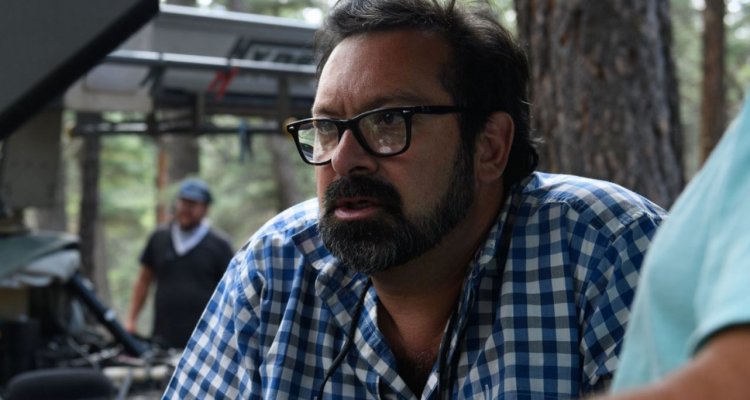With the COVID-19 pandemic dominating the headlines of just about every major business industry, especially when it comes to film and TV, the inevitable discussions surrounding the death of the theatrical release have been making their rounds. And while there is truth to how streaming services and the pandemic have forced studios to re-evaluate their release strategies for films, James Mangold thinks the damage done to cinemas was self-inflicted and begun well before all this new technology and viral outbreaks.
Speaking to Discussing Film, the filmmaker behind “Logan” and last year’s “Ford v. Ferrari” spoke about his thoughts on the pandemic and the current state of cinemas, as it relates to theatrical exhibition. And as you might expect, he’s well aware that there’s a paradigm shift happening with some films being destined for streaming and event films dominating the box office. But he doesn’t blame streaming services completely for this seismic change.
READ MORE: ‘Indiana Jones 5’: James Mangold In Talks To Replace Steven Spielberg As Director
“To me, filmmaking is filmmaking,” said Mangold. “What we have always considered the delivery of a movie to a ‘smaller screen’ is sometimes now not necessarily that much of a smaller screen. The reality of theater projection has gotten so tragically bad in so many cases. The fight to put your movie in a theater that stinks and someone’s eating an enchilada next to you – half the screen is out of focus or too dim.”
He continued, “Theatrical has its own problems, which is that if it doesn’t make itself a sterling presentation that you cannot approximate at the home – then theatrical kills itself without any other delivery method even competing with it. When I talk to theater owners or theater chains, that’s the big thing.”
To help illustrate his point, Mangold talks about a special screening he attended for the aforementioned “Ford v. Ferrari,” which was put on by the studio and was supposed to be a premier showcase of his latest Oscar-worthy film. Instead, what he found was a shoddy experience, due in large part to the “lazy theater owners” that don’t switch lenses between screenings to provide the best viewing experience.
“I discovered both screenings were happening through 3D lenses with a non-3D movie,” he explained. “This again is at a studio-booked, landmark screening at a fancy major owned theater in New York. My point really is just that theatrical is a wasteland right now of a lot of shitty delivery of movies to audiences who are paying a premium to see them on a big screen. That’s something that needs to be solved in the future.”
Mangold added, “I don’t think theatrical is dead. I’m sure there’s going to be casualties from all this and the theater chains, but I think that people wanting to go out and have a special experience on a big, big screen with great presentation of a movie that isn’t available anywhere else… is something that will continue. But I do think the kind of glory period that I came up during the ’90s, when there was really thriving independent cinema on screens in major cities, is already gone. It was gone before this virus arrived. In many ways, you could see streaming as the chicken or the egg – either the killer or the savior of more interesting voices in movies.”
With studios selling distribution rights for theatrical films to streaming services lately and the rise of Premium VOD for first-run features, it’s obvious that the pandemic and streaming have helped the change happen. But we’ll just have to wait and see if theater owners are willing to change their ways to help do their part to make people want to head to cinemas again in the future.

